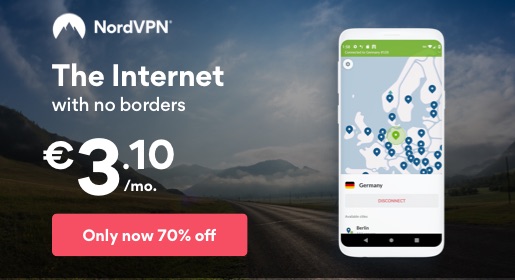Many people think that they can learn a language and become fluent simply by using an app.
Sadly, this is a myth.
Now, I’m definitely not here to bad mouth Duolingo, or indeed any other German language learning apps.
However, we need to do a bit of a reality check. Don’t expect too much from a simple app that costs nothing, or maybe just a few Euros, to download. They’re a great way to get started with learning a language, don’t get me wrong. But what I’m going to debunk here is the myth that doing a few exercises in an app each day will lead you to language fluency.
Spoiler alert: I’m afraid it won’t. Learning a language is hard work, and is a long-term goal.
We’ll look at a few different angles here, so if you want to navigate between them, just use the links below.
Using German Language Learning Apps is a Great Way to get Started
Learning German via an app is a fantastic, cheap and accessible way to get started on your journey. You don’t need access to native speakers to learn German via an app.
Because apps are interactive and have been designed and programmed cleverly to give us a pleasant user experience, it requires much less discipline to learn a language this way than using ye olde method of studying with a book, or cassettes, or CDs to try to teach yourself.
Plus, they’re on your smartphone, which these days most people are rarely separated from throughout their day.
Apps also enable interactive learning by offering quizzes, set learning patterns we can undertake each day, as well as tailoring the experience depending on how many minutes, or modules, we wish to study each day.
There are also lots of different types of apps to help us with our language learning experience.
These can range from:
- Things as simple as online dictionaries and verb conjugators (which are amazing value for money, compared to what books doing the same thing cost 20 years ago when I was an undergraduate student),
- Right the way through to “one stop shop” language learning apps such as Duolingo, MosaLingua, Busuu, Mondly and a whole raft of others.
I do genuinely think that German language learning apps (when combined with other learning methods alongside them) are better than classroom tuition for absolute beginners.
They allow self-paced learning in small chunks, at a time convenient to the user. When you’re just getting started, this is important to maintain momentum and form a habit.
10-15 minutes learning a day is scientifically proven to be better than 1 hour a week, crammed into one session. I won’t go into the science here, but check out James Clear’s “Atomic Habits” or Charles Duhigg’s “The Power of Habit” if this interests you.
It’s easy to skip class when it’s snowing, or if your kid’s sick, or if there’s a work social that evening. Whereas 10-15 minutes learning on an App whilst sat on the train, or, erm, even on the toilet (!) is harder to make excuses to skip.
You can fit it around your busy day to suit you. That’s the good news.
The limitations of using a German language learning App
Where apps can reach their limits is when you start to move out of absolute beginner territory and need to develop other skills.
There are 4 key elements to language learning. Learning German is no exception here.
- Reading
- Writing
- Speaking
- Listening
Grammar exercises fall into all 4 of these – but predominantly would be categorised into writing and speaking.
Apps tend to overwhelmingly concentrate on simple grammar exercises and vocabulary training.
Both of these are vitally important, but they tend to miss the 2 key aspects of gaining practical language proficiency quickly: Speaking and listening to native speakers in actual, real life situations.
Even apps which do have speaking and listening incorporated into them, for example MosaLingua, tend to only offer the option to listen to a phrase recorded by a native speaker and then repeat it back.
It doesn’t give any contextual application of the spoken word. It doesn’t prepare you for regional accents. It doesn’t prepare you for the language spoken by native speakers, aimed at native speakers.
Practical examples of this are train station announcements, or interactions with German bureaucrats at places like the Ausländerbehörde, or having to call your landlord because you have a blocked sink.
These are classic situations that you’re likely to find yourself in at some point. And let’s be absolutely clear. An app is going to be useless in preparing you for these.
What you can do to mitigate
OK, so using a German language learning app should definitely be a part of your strategy. I’d say you could probably reach A2 level German through disciplined, daily practice through an app.
You might even be pushing B1 in certain aspects such as grammar and reading comprehension.
What it’s not going to do is give you a well-rounded exposure to all aspects of learning a language, nor is it going to give you the impetus or push to go out and gain fluency.
There are 3 main reasons for this:
- Lack of exposure to all aspects needed to learn the language
- No regular interaction with native speakers
- Nothing to hold you accountable
Apps, as we mentioned, only really cover 2 aspects of language learning, reading and writing.
To bridge this deficit, you can easily get practice with listening comprehension through podcasts and YouTube videos. These, together with using a German language learning app, can realistically get you up to intermediate level with the right amount of focus, and perhaps with someone who speaks the language to help correct your mistakes.
Add to this some kind of speaking practice, which is absolutely essential as well. Speaking is what really moves the needle. If your grasp of grammar is excellent but you’re too scared to open your mouth, that’s not going to get you very far when you live in Germany and need to use the language for day-to-day practicalities.
If the thought of speaking a foreign language keeps you awake at night in a cold sweat, then I’m afraid you’re going to have to find a way to overcome it.
The answer to this is practice through a safe space where you can gently ease yourself into it. This will give you the confidence to tackle an unhelpful bureaucrat or calling your internet service provider’s customer support line.
Getting a tutor via online platform italki is a great, inexpensive option if you want to have a regular check-in with a native speaker to help you have conversations without feeling stupid, or to correct or broaden your understanding of grammatical concepts or idiomatic phrases.
Investing in yourself is the only way to have skin in the game
So, you’ve looked into podcasts and YouTube for listening comprehension, and having a tandem partner or online tutor to help you improve your speaking.
Great!
Now it’s time to tackle the last one: Accountability
You see, you need to have a motive, a push factor, a reason to succeed, in order to move from intermediate to fluent.
That may the ability to communicate with your German in-laws, or being considered for a promotion at work which involves managing German team members. They are good enough incentives usually in themselves.
But what if you don’t have these?
The only way to push yourself is to have some financial skin in the game by investing in a language class, or as an alternative, an online course.
Some people learn better through community and having peers around them. If that’s you, then take a language course. And that doesn’t have to be in person if there’s not one in your local area, or for those of you who are still planning your move to Germany.
Lingoda, for example, offers small group tuition with real tutors, done through an online learning platform. You can get a free, 7 day trial here to try out before you commit.
This certainly beats having to spend 30 minute on the bus or metro traipsing half way across town on a cold, winter evening to go to class.
But maybe you’re someone who prefers the community and feel of face-to-face tuition? Then I would suggest you invest in a good language school such as the Goethe Institut.
Yes, they’re more expensive – but that’s good. Let me explain why.
First of all, the cheapest in-person tuition for learning German is usually an “integration course” at your local further education college (Volkshochschule). Your fellow students could well be unemployed foreigners sent there as a condition of them continuing to receive welfare benefits.
If they’re not paying for the course themselves, will they be as motivated to learn as you are? Impossible to say for sure, but if you’ve got some skin in the game, you’re generally going to be more motivated because you’ve made a financial investment.
Secondly, the more you pay, the more likely you are to push yourself to succeed. Have you ever stopped to think why coaches and mentors are so expensive but ultimately so successful?
If your course costs double what you had planned but you learn German twice as fast, then it’s worth the investment.
Know the limits of apps, and take action
Apps should be an integral part of your German language learning arsenal.
But they shouldn’t be your only tool, unless you’re just planning to learn the basics.
And if you’re going to be working in Germany, that’s not enough.
For anyone living in Germany as an expat, or anyone who has serious ambition to move to Germany for work, you really need to invest in yourself and expand on this through some more formal tuition.
This is the only way to force yourself to be accountable and plug the gaps of what apps (and podcasts and YouTube) will never be able to teach you on their own.









